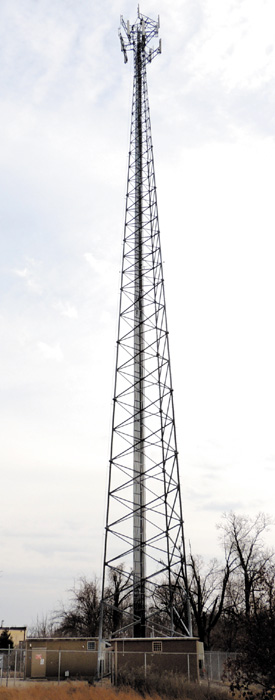
 |
The Reporter covers Miller, Morgan and Camden County in Central Missouri's Lake of the Ozarks and is published once per week on Wednesdays.
Published March 26, 2014
Nixon signs bill over cities’ pleas
By Jeff Thompson
LAKE OF THE OZARKS – Despite the outcry from cities throughout the state, Gov.
Jay Nixon signed the telecommunications bill into law last week.
One thing the bill will do is remove some controls that municipalities have over
the placement of cell phone towers.
Reactions from lake area municipalities to Nixon’s signing the much-debated
telecommunications bill into law have been met with bleak resignation.
Nixon signed Senate Bill 650 on Thursday, March 20 along with three other
telecommunications bills - SB 649, SB 651 and SB 653.
According to Nixon’s office, “Senate Bill 650 places parameters around the
wireless approval process to encourage more timely investment in broadband
expansion and wireless service improvement ...”
In addition, Nixon stated that SB 649 and 653 address management of public
rights-of-way and utility pole access, and SB 651 deals with immunity for
telecommunications companies in emergency situations.
The one word that was common in reactions from Osage Beach, Camdenton and Lake
Ozark to Nixon’s action was “disappointment” with varying modifiers.
“We’re obviously very disappointed,” Osage Beach City Administrator Nancy
Viselli said.
Viselli stated city officials worked very hard against the bill.
“Everybody wrote letters to get the bill (SB 650) stopped,” Viselli said, “then
everybody wrote letters again to get the governor not to sign it.”
Osage Beach has been working against the bill since the original version came
into being last year
House Bill 331 was originally submitted in 2013 by State Rep. Rocky Miller.
Miller had stated at a November 2013 Osage Beach board meeting that his original
bill was approximately two pages long but when it came back from various House
committees, it had been combined with major portions of House Bill 345.
Miller had denounced the new version of his original bill.
“It had all of (House Bill) 345, also some other stuff in it” (including
railroad permit regulations having nothing to do with telecommunications),”
Miller had said. “It’s a very bad law the way it’s put together.”
The 2013 bill was eventually defeated by the Cole County Circuit Court based on
the idea that the House Bills are unconstitutional because they contain multiple
subjects and violate the Clear Title and Original Purpose provisions of the
Missouri Constitution, according to the Missouri Municipal League (MML).
Lake Ozark had a similar response to Osage Beach but one shaded with
resignation.
“We’re disappointed, sure,” Lake Ozark City Administrator Dave Van Dee said,
“but we’ll work with legal counsel to bring our ordinances in line with the new
statues.”
A last-minute effort by Camdenton to defeat the bill also proved fruitless.
On Tuesday, March 18, the Camdenton Board of Aldermen unanimously approved a
resolution urging the governor to veto SB 650, but to no avail.
In part, the resolution stated “the proposed legislation would ... allow a
mobile telephone company’s total disregard or local citizens and neighborhoods
to voice and provide input into the appearance of a tower antennae facility
before it is built within our local community and neighborhoods ...” adding “the
proposed legislation ... could severely impact the beauty and environment of the
city of Camdenton, the Ozarks and Missouri ...”
The MML immediately sent a letter to its members lamenting Nixon’s decision to
sign all four telecommunication bills into law.
“These bills severely impact cities, drastically limiting their ability to
oversee wireless telecommunication expansion and upgrades in Missouri
communities,” Dan Ross, MML Executive Director, said in the letter. “We are
disappointed that these harmful bills are now Missouri law.”
Ross described the cities’ efforts as a “big guy versus little guy” situation.
“It is important to note that communities were working in a David vs. Goliath
situation,” Ross said. “The telecom giants had unlimited resources to push their
initiatives.”
However, the MML praised the individual municipalities’ efforts.
“Despite the giant obstacles in challenging this legislation, you stood your
ground and provided a clear voice of reason,” Ross said.
All content is Copyright 2014 by Reporter Publishing, L.L.C. Unauthorized reproduction is prohibited without written permission.